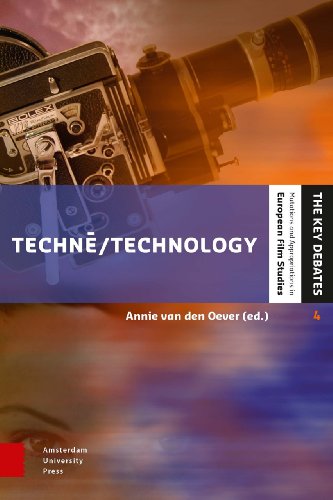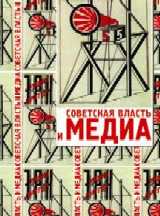Annie van den Oever (ed.): Technē/Technology: Researching Cinema and Media Technologies (2014)
Filed under book | Tags: · aesthetics, art, cinema, film, film theory, image, machine, media, media technology, media theory, perception, phenomenology, philosophy of film, philosophy of technology, photography, technē, technology, television, video, vision

“This fourth title in the series The Key Debates sets out where the term technē comes from, how it unleashed a revolution in thought and how the concept in the midst of the current digital revolution, once again, is influencing the study of film. In addition, the authors – among them André Gaudreault, Geoffrey Winthrop-Young, Martin Lefebvre, Dominique Chateau, Nanna Verhoeff, Andreas Fickers and Ian Christie – investigate how technologies have affected the major debates about film, how they affected film theory and some of its key concepts. This is one of the rare books to assess the comprehensive history of the philosophies of technology and their impact on film and media theory in greater detail.”
Publisher Amsterdam University Press, Amsterdam, 2014
The Key Debates: Mutations and Appropriations in European Film Studies series
Creative Commons BY NC ND License 3.0
ISBN 9089645713, 9789089645715
413 pages
Hans Günther, Sabine Hänsgen (eds.): Soviet Power and the Media (2006) [Russian]
Filed under book | Tags: · 1920s, 1930s, cinema, communism, film, media, media theory, photography, politics, print, radio, socialist realism, sound, soviet union, technology, theatre

Proceedings from the conference “The Political as Communicative Space in History” (Bielefeld, October 2003) devoted to the comparative analysis of the media in the Soviet Union of the 1920s and 1930s provide a pioneering media-theoretical exploration of the role of radio, film, photography and print in the engineering of the communist Soviet power.
Sovetskaya vlast’ i media [Советская власть и медиа]
Publisher Akademicheskiy proekt, St. Petersburg, 2006
Open Access
ISBN 5733103353, 9785733103358
621 pages
Reviews: Wolfgang Schlott (Die Welt der Slaven, 2007, DE, PDF), Alexander Prokhorov (Studies in Russian and Soviet Cinema, 2007), Alexander Ulanov (Novoe literaturnoe obozrenie, 2007, RU), Jana Klenhova (ArtMargins, 2008), Yuliya Liderman (Usloviya teatra, RU, 2010).
PDF (broken link fixed on 2014-1-28)
PDFs
Craig Dworkin: No Medium (2013)
Filed under book | Tags: · architecture, art, art theory, attention, body, book, conceptual art, dada, film, fluxus, literature, media, music, painting, paper, phonograph, sculpture, sex, silence, temporality, time, translation, typography
“In No Medium, Craig Dworkin looks at works that are blank, erased, clear, or silent, writing critically and substantively about works for which there would seem to be not only nothing to see but nothing to say. Examined closely, these ostensibly contentless works of art, literature, and music point to a new understanding of media and the limits of the artistic object.
Dworkin considers works predicated on blank sheets of paper, from a fictional collection of poems in Jean Cocteau’s Orphée to the actual publication of a ream of typing paper as a book of poetry; he compares Robert Rauschenberg’s Erased De Kooning Drawing to the artist Nick Thurston’s erased copy of Maurice Blanchot’s The Space of Literature (in which only Thurston’s marginalia were visible); and he scrutinizes the sexual politics of photographic representation and the implications of obscured or obliterated subjects of photographs. Reexamining the famous case of John Cage’s 4’33”, Dworkin links Cage’s composition to Rauschenberg’s White Paintings, Ken Friedman’s Zen for Record (and Nam June Paik’s Zen for Film), and other works, offering also a “guide to further listening” that surveys more than 100 scores and recordings of “silent” music.
Dworkin argues that we should understand media not as blank, base things but as social events, and that there is no medium, understood in isolation, but only and always a plurality of media: interpretive activities taking place in socially inscribed space.”
Publisher MIT Press, 2013
ISBN 0262018705, 9780262018708
219 pages
Interview with the author (Critical Margins)
Author’s lecture at Penn Poetry & Poetics (video, 19 min)
Reviews: Johanna Drucker (Los Angeles Review of Books), Michael Leong (Hyperallergic).
Commentary: Richard Marshall (3:AM Magazine).


